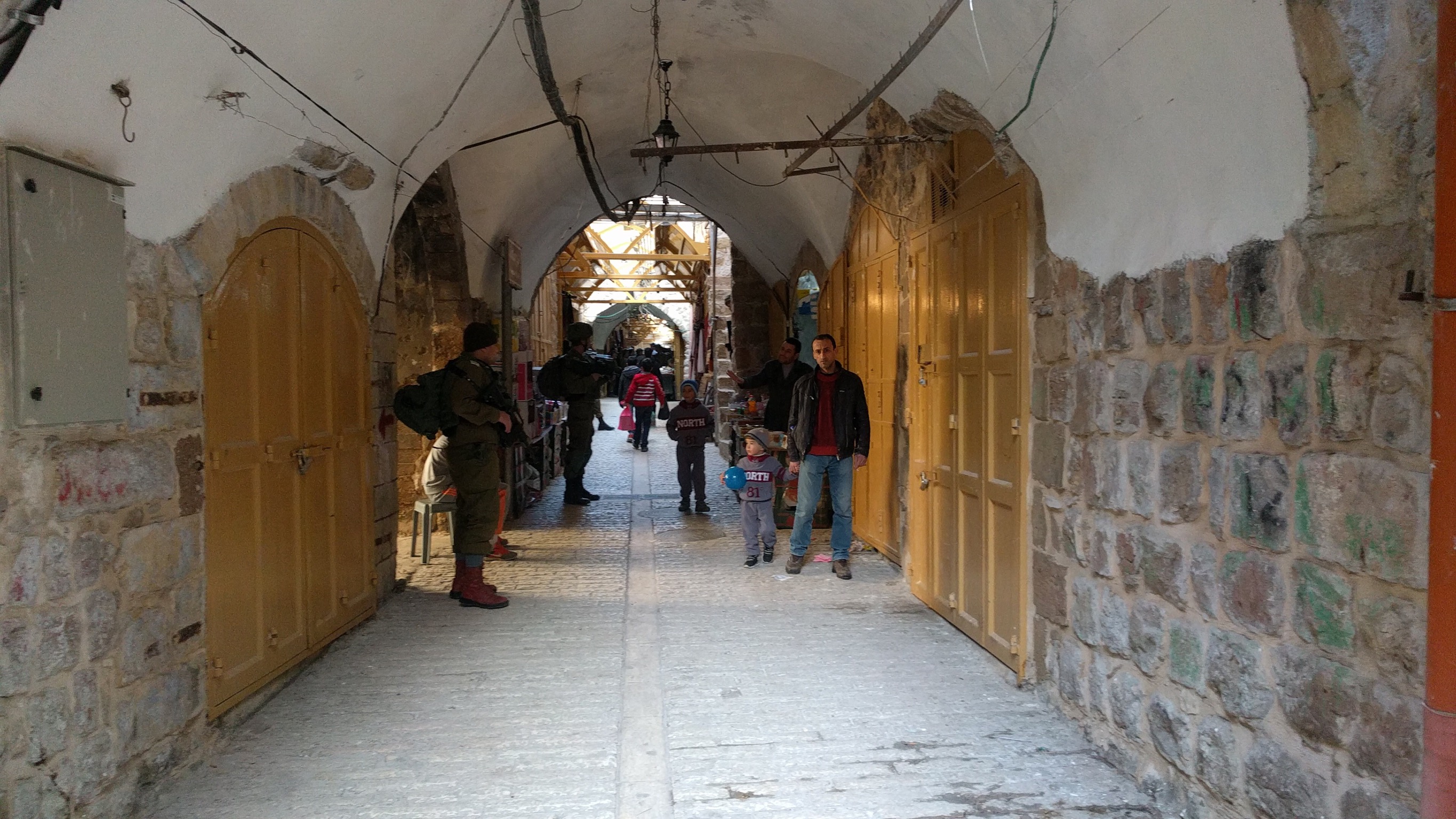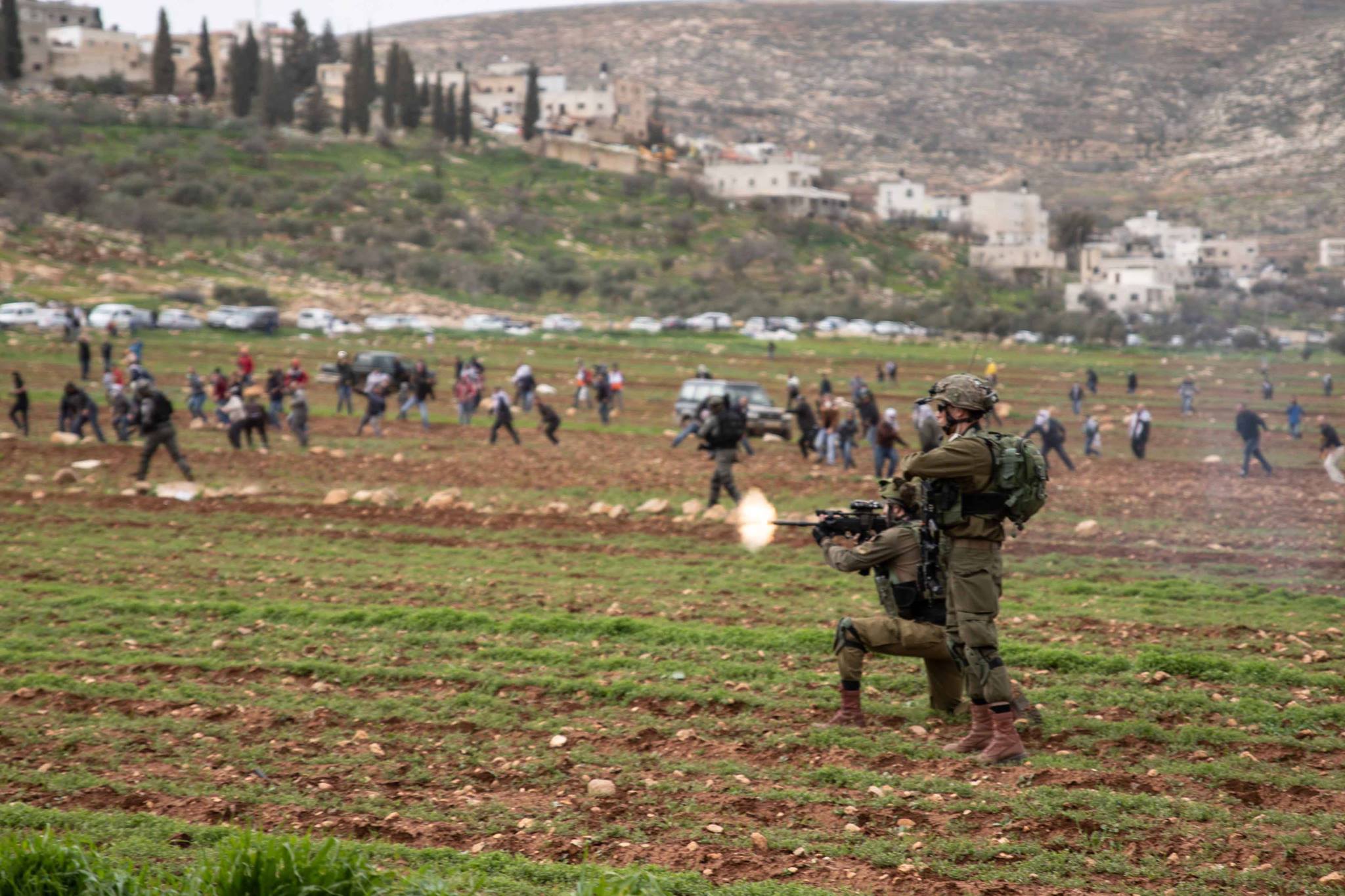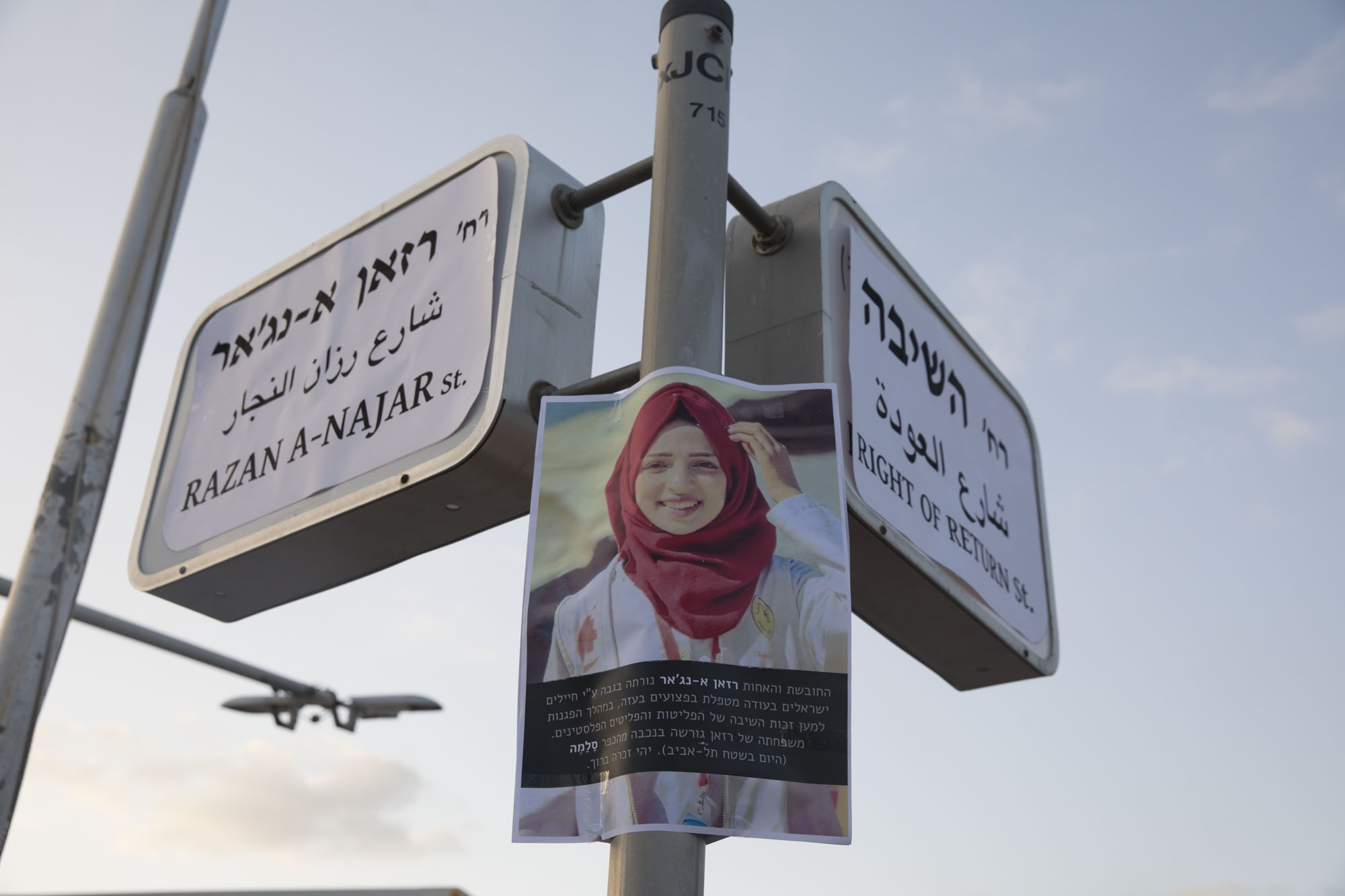Tag: Ethnic Cleansing
-
Occupation forces shoot 9 demonstrators near Ramallah
9th February 2019 | International Solidarity Movement, Al-Khalil team | Hebron, occupied Palestine Despite being condemned by all authoritative bodies, the occupation continues to expand it’s settlements throughout the ‘West Bank’, with total disregard for international law. All the settlements are built on Palestinian land and these illegal settlers often raid local villages, lacerating olive…
-
Salama remembers Razan
In response to a call for solidarity from Gazan women, a Jewish activist group dubbed “Return” gathered to hold a memorial for Razan AlNajar, at the location of her village of origin, Salameh. While thousands of women marched towards the border in the Saja’iya area in Gaza, the activists held a ceremony honoring Razan and the protesters…



